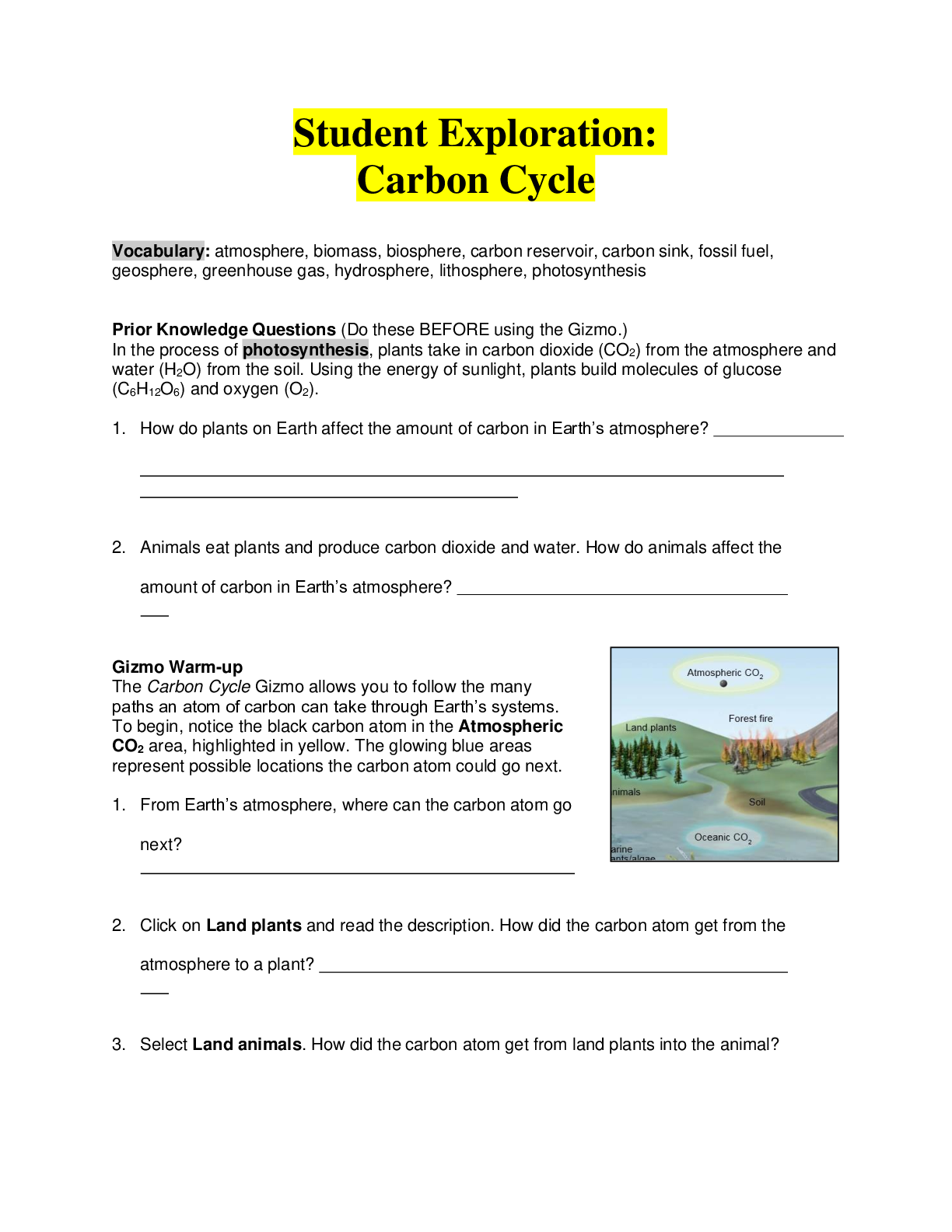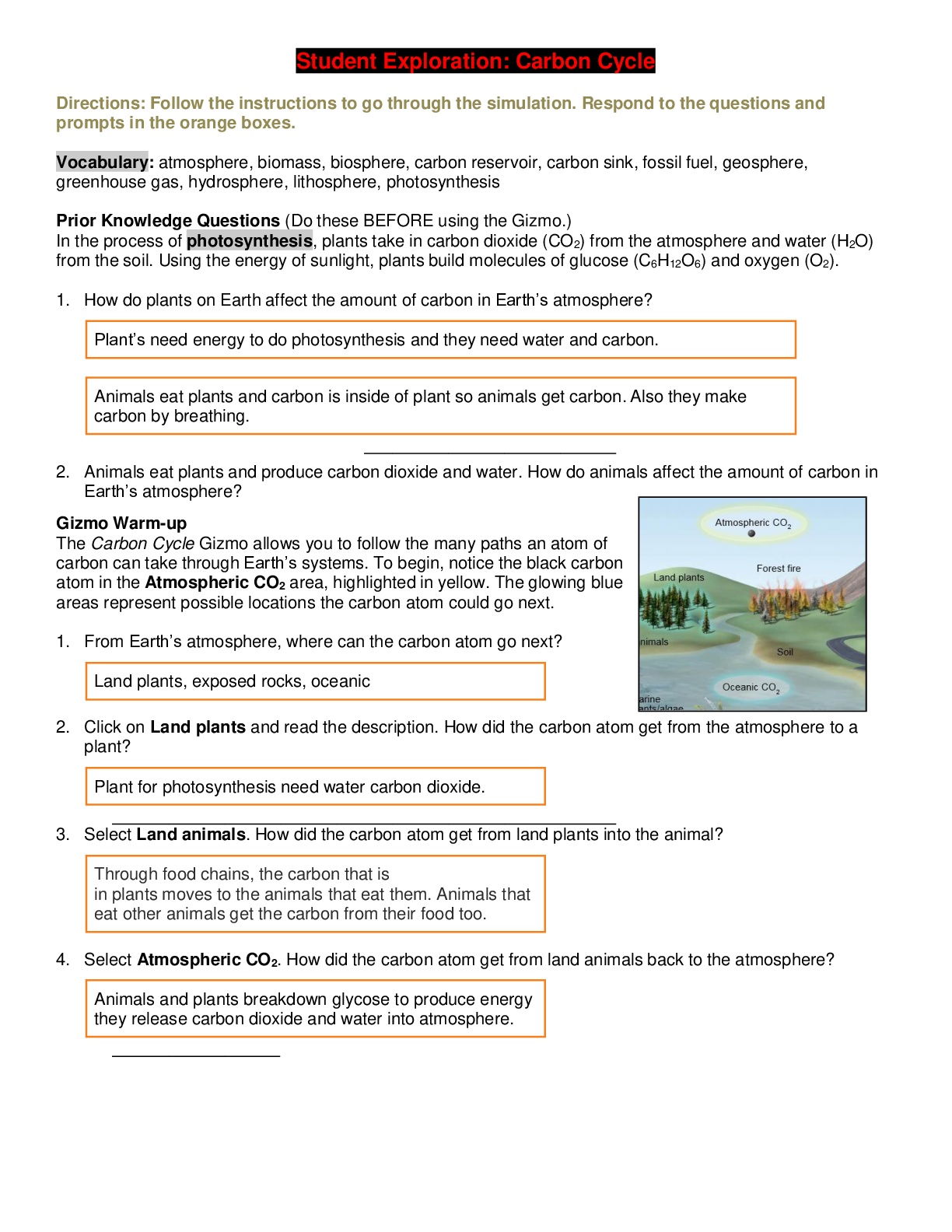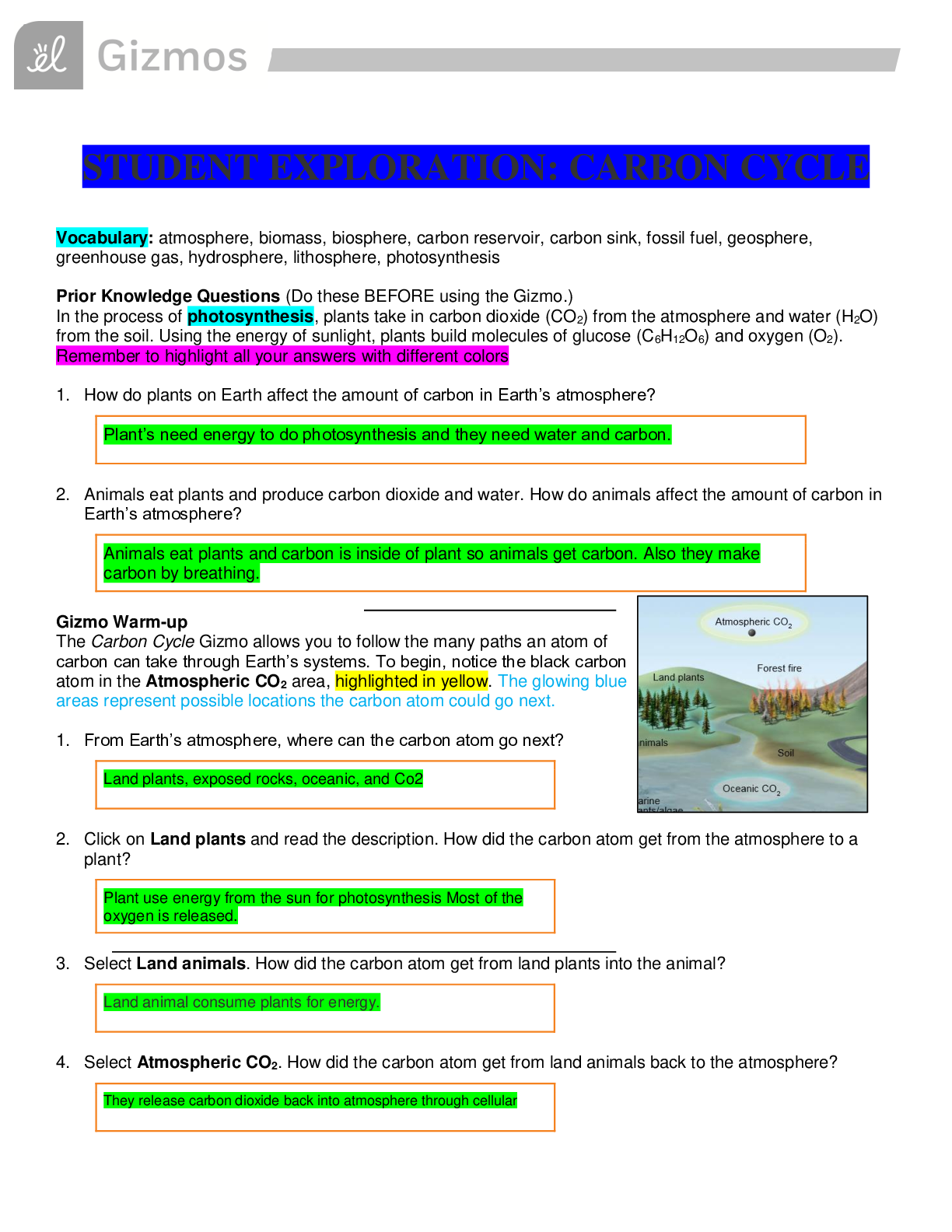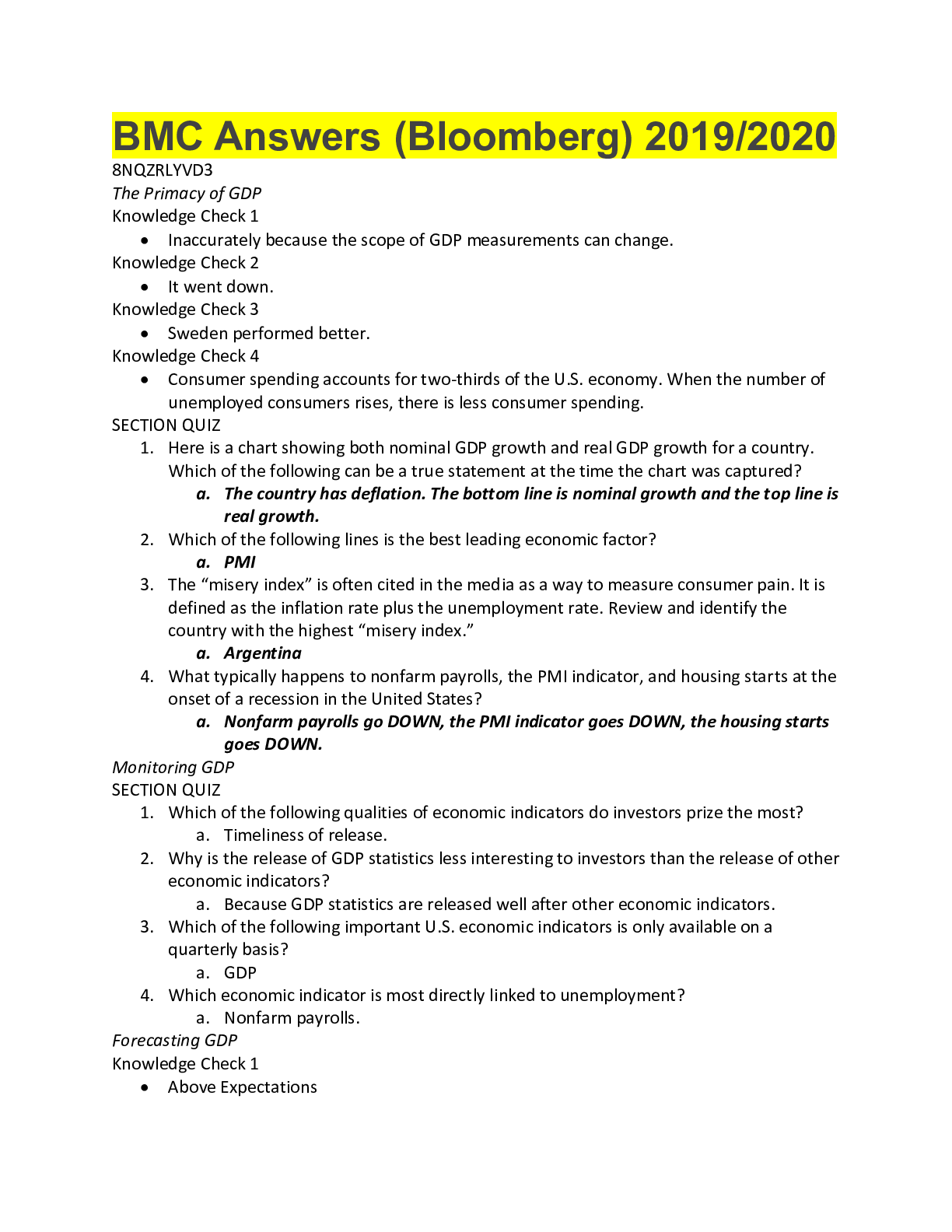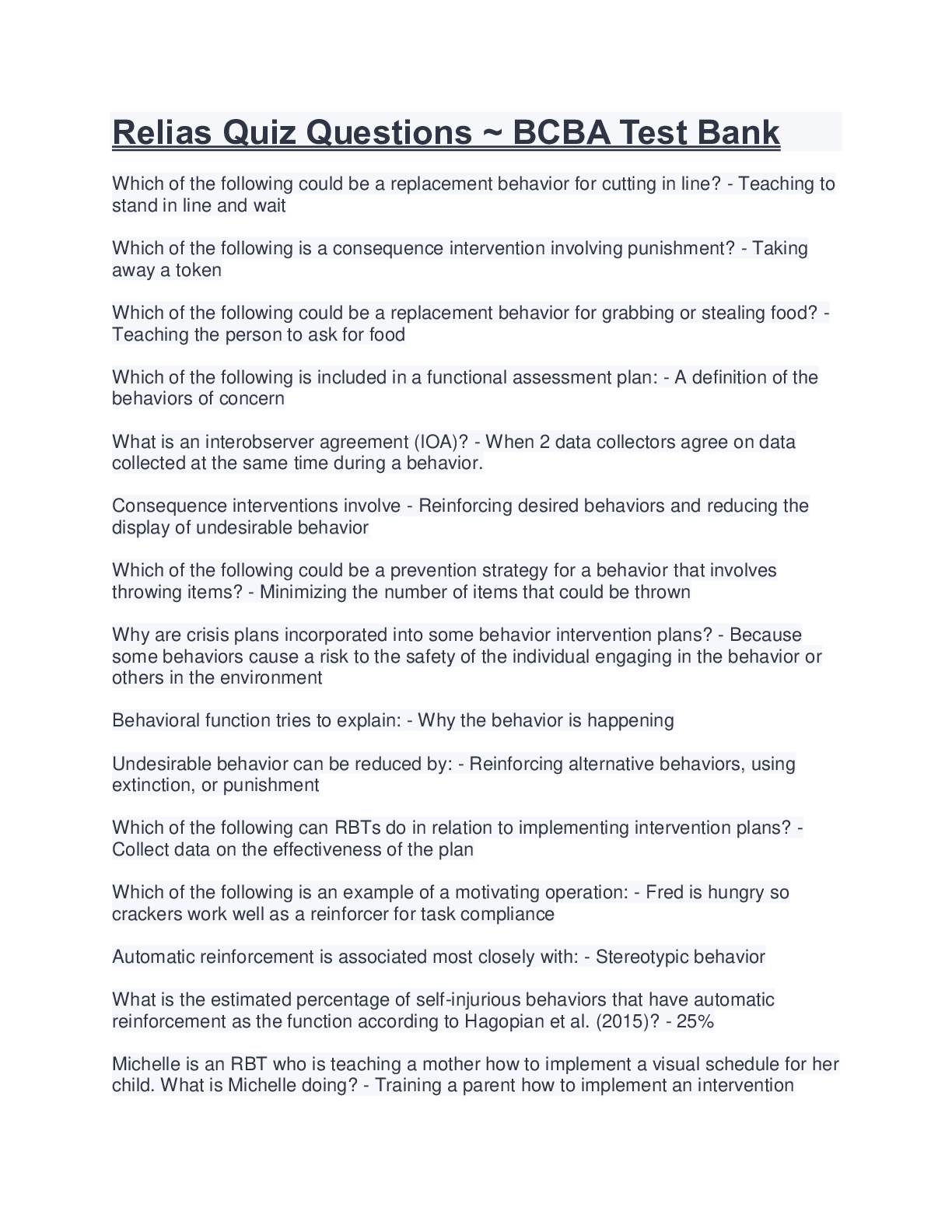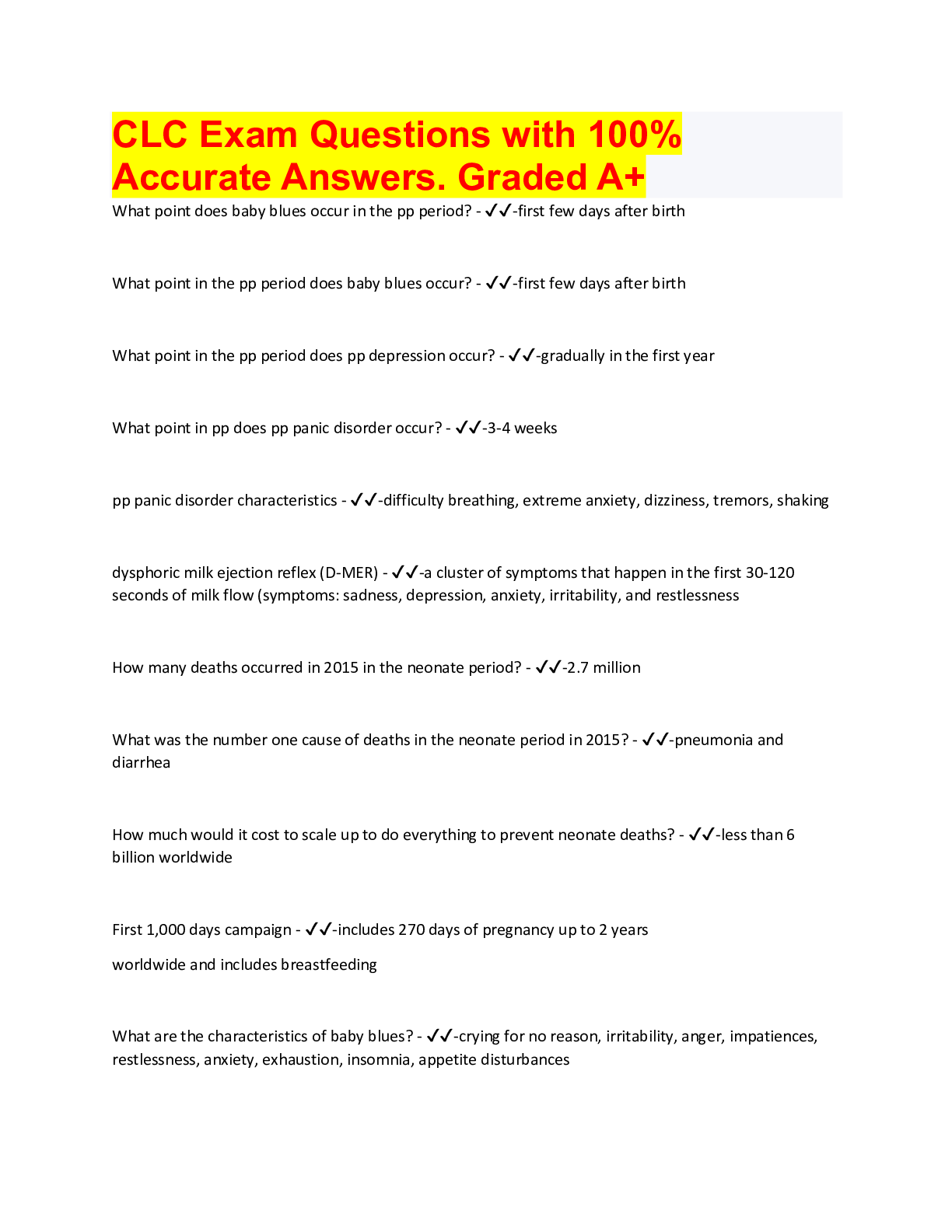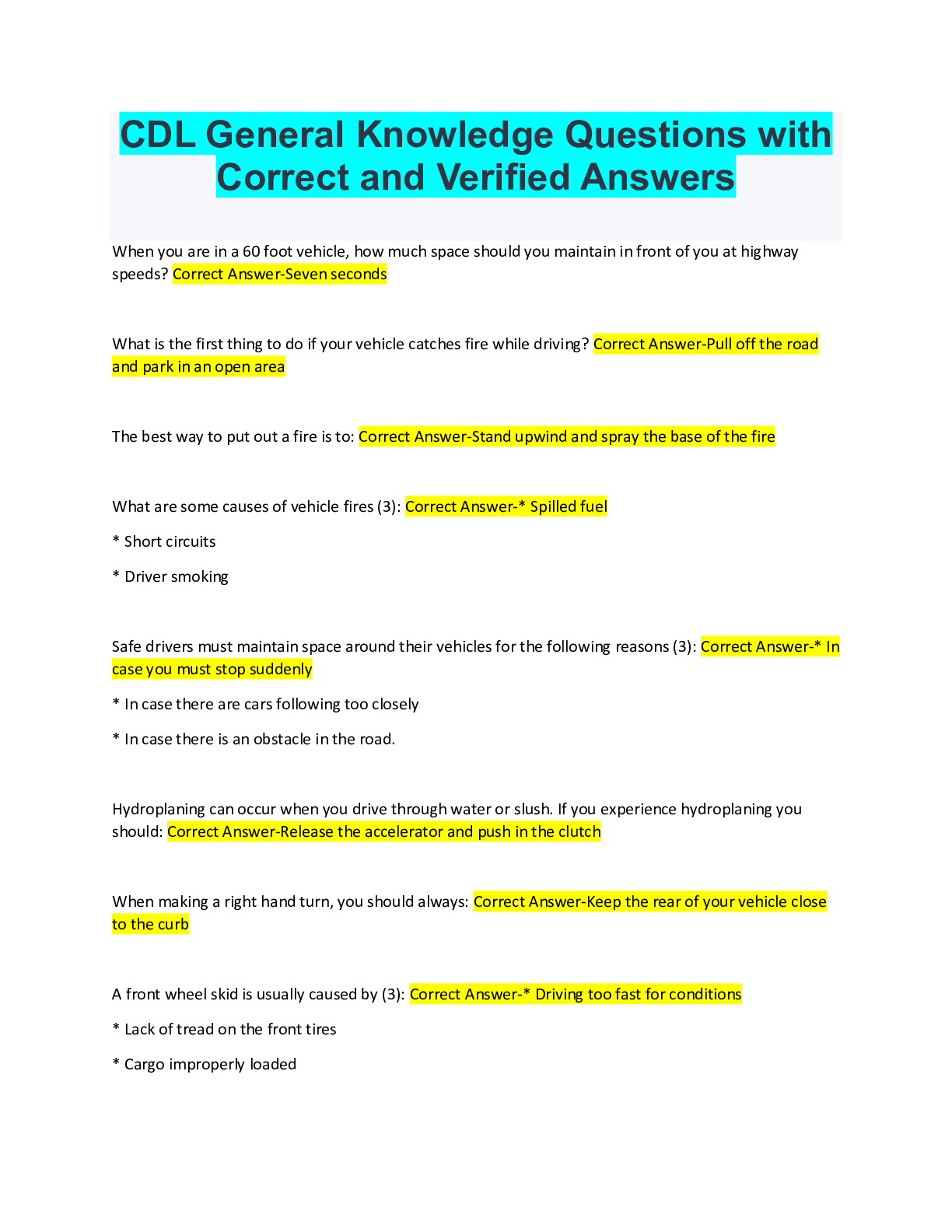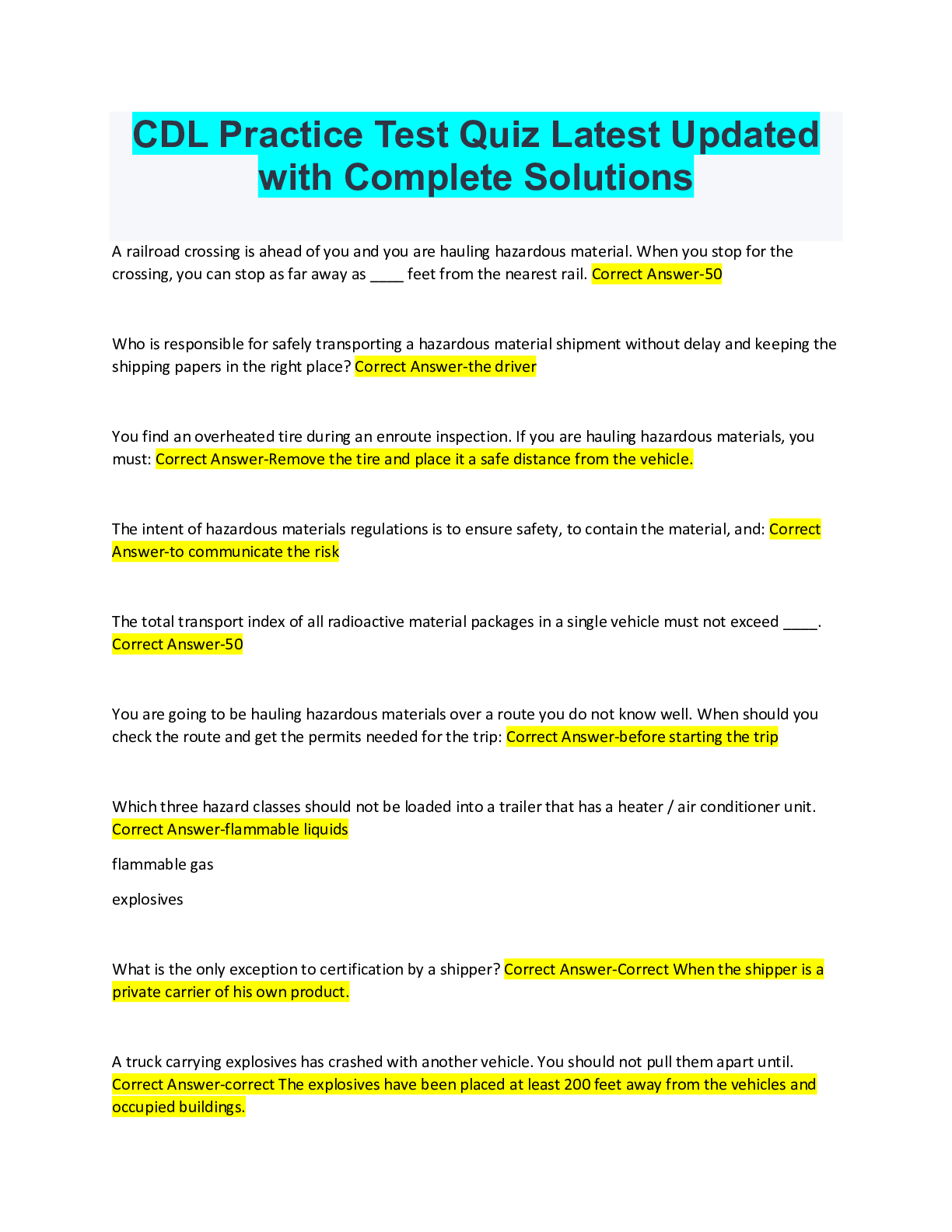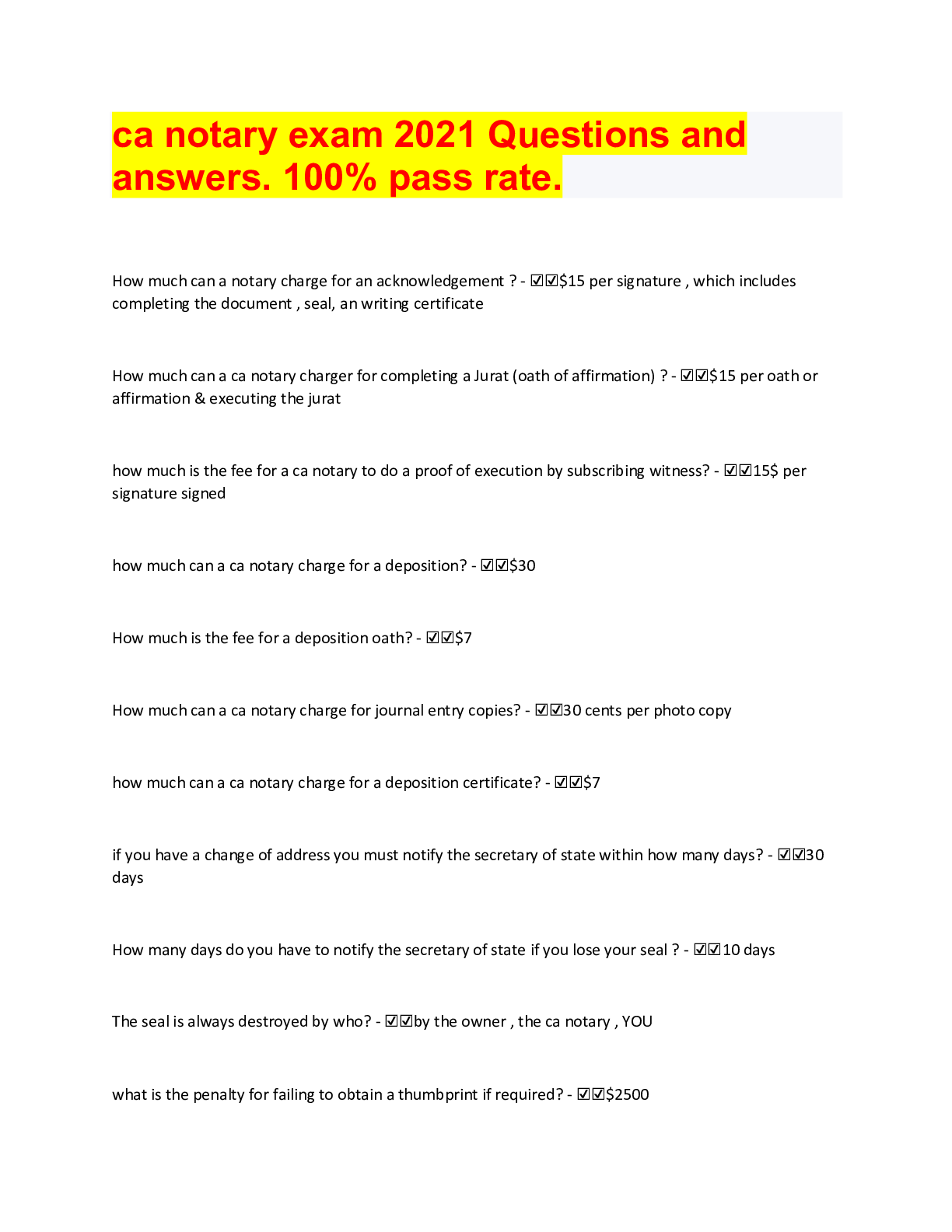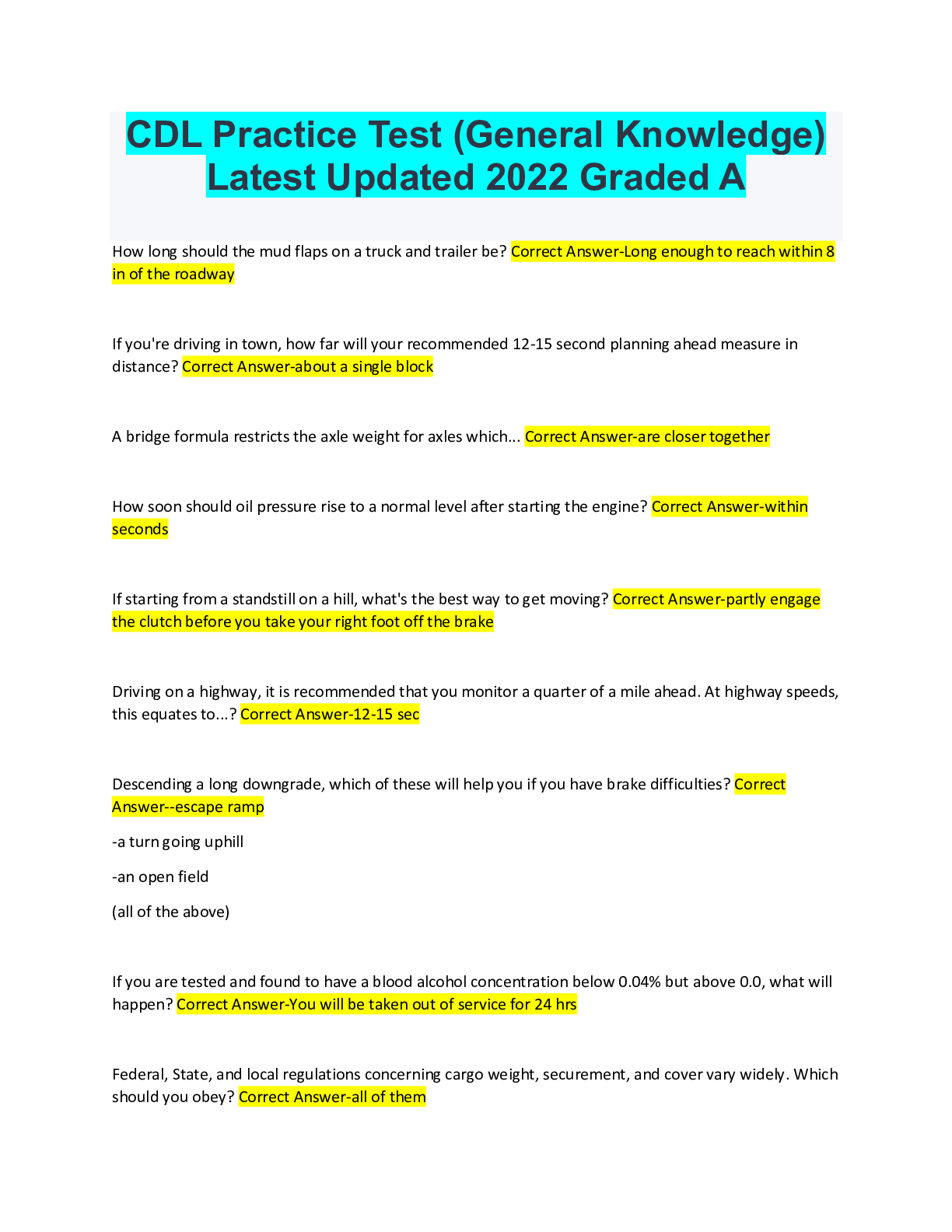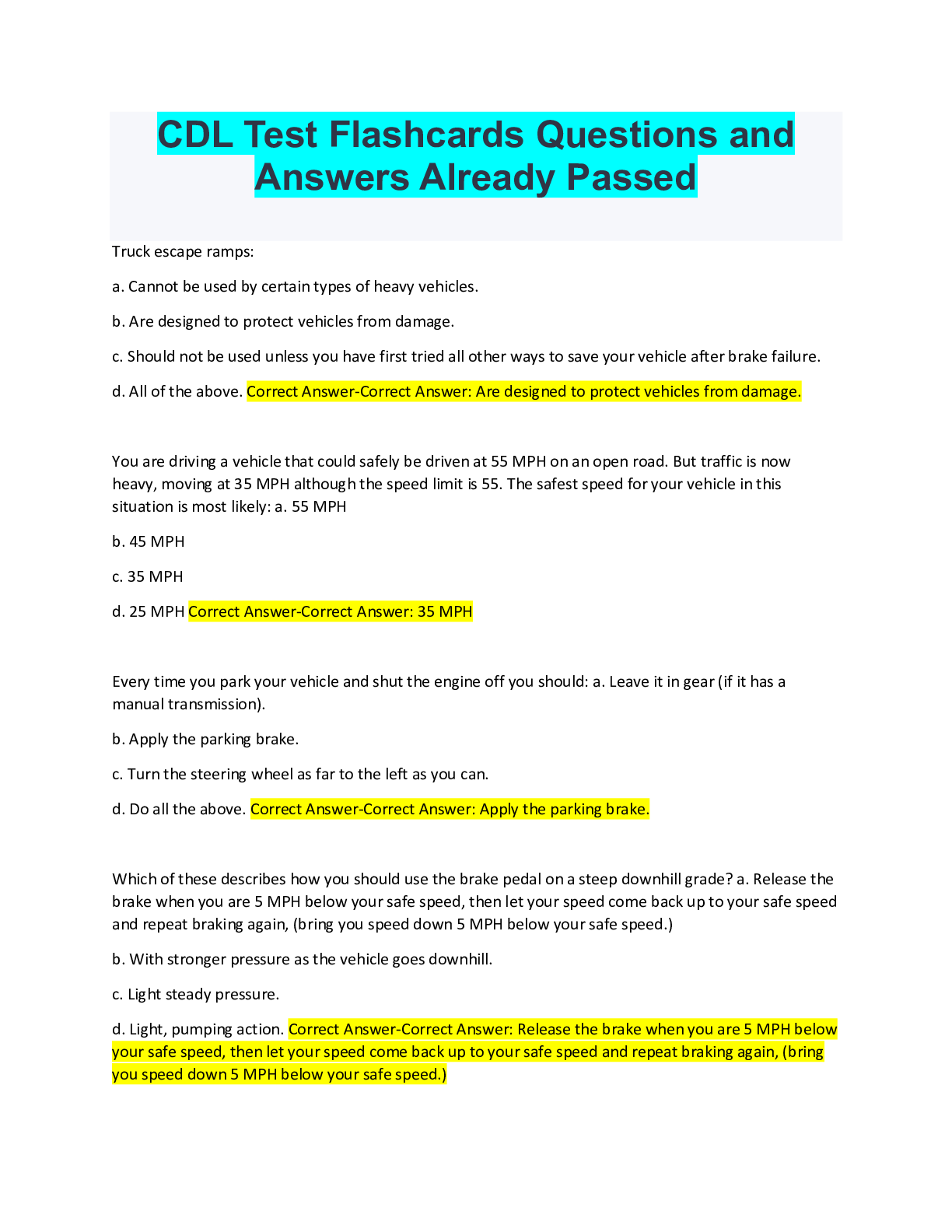*NURSING > QUESTIONS & ANSWERS > Stephani DeBise - Carbon Cycling GIZMO (All)
Stephani DeBise - Carbon Cycling GIZMO
Document Content and Description Below
Student Exploration: Carbon Cycle Vocabulary: atmosphere, biomass, biosphere, carbon reservoir, carbon sink, fossil fuel, geosphere, greenhouse gas, hydrosphere, lithosphere, photosynthesis P rior Kno... wledge Questions (Do these BEFORE using the Gizmo.) In the process of photosynthesis, plants take in carbon dioxide (CO2) from the atmosphere and water (H2O) from the soil. Using the energy of sunlight, plants build molecules of glucose (C6H12O6) and oxygen (O2). Make sure all of your answers are in a different color. 1. How do plants on Earth affect the amount of carbon in Earth’s atmosphere? 2. Animals eat plants and produce carbon dioxide and water. How do animals affect the amount of carbon in Earth’s atmosphere? Gizmo Warm-up The Carbon Cycle Gizmo allows you to follow the many paths an atom of carbon can take through Earth’s systems. To begin, notice the black carbon atom in the Atmospheric CO2 area, highlighted in yellow. T he glowing blue areas represent possible locations the carbon atom could go next. 1. From Earth’s atmosphere, where can the carbon atom go next? 2. Click on Land plants and read the description (at the bottom of the simulation). How did the carbon atom get from the atmosphere to a plant? 3. Select Land animals. How did the carbon atom get from land plants into the animal (read the description )? 4. Select Atmospheric CO2. How did the carbon atom get from land animals back to the atmosphere? | Activity A: Carbon pathways | Get the Gizmo ready: | | ● Click Reset. | | | | | Introduction: Earth can be divided into four systems. The atmosphereis the air above Earth’s surface. The hydrosphereis composed of all of Earth’s water. The geosphere is the rocky, non-living part of Earth. The biosphere consists of all living things, including people. Some scientists use the term “anthroposphere” to describe everything made or modified by humans. Question: How does carbon move between the atmosphere, hydrosphere, biosphere, and geosphere? 1. Explore: Use the Gizmo to create a path for carbon (7 steps total) that begins and ends in the atmosphere. Fill in the steps in the path below. Then, summarize very briefly how the carbon atom got to that location. Carbon path How it got there Atmospheric CO2 Atmospheric CO2 comes from volcanoes, burning fossil fuels, and other sources. 2. Create: Click Reset. Use the Gizmo to create a path in which the carbon atom goes from the atmosphere to the hydrosphere, biosphere and geosphere (see the definitions at the beginning of Activity A). Describe each transition briefly. 3. Explore: Use the Gizmo to create three more (different) carbon paths, each starting and ending in the atmosphere. Label each location with A for atmosphere, B for biosphere, G for geosphere, or H for hydrosphere. [Show More]
Last updated: 1 year ago
Preview 1 out of 7 pages
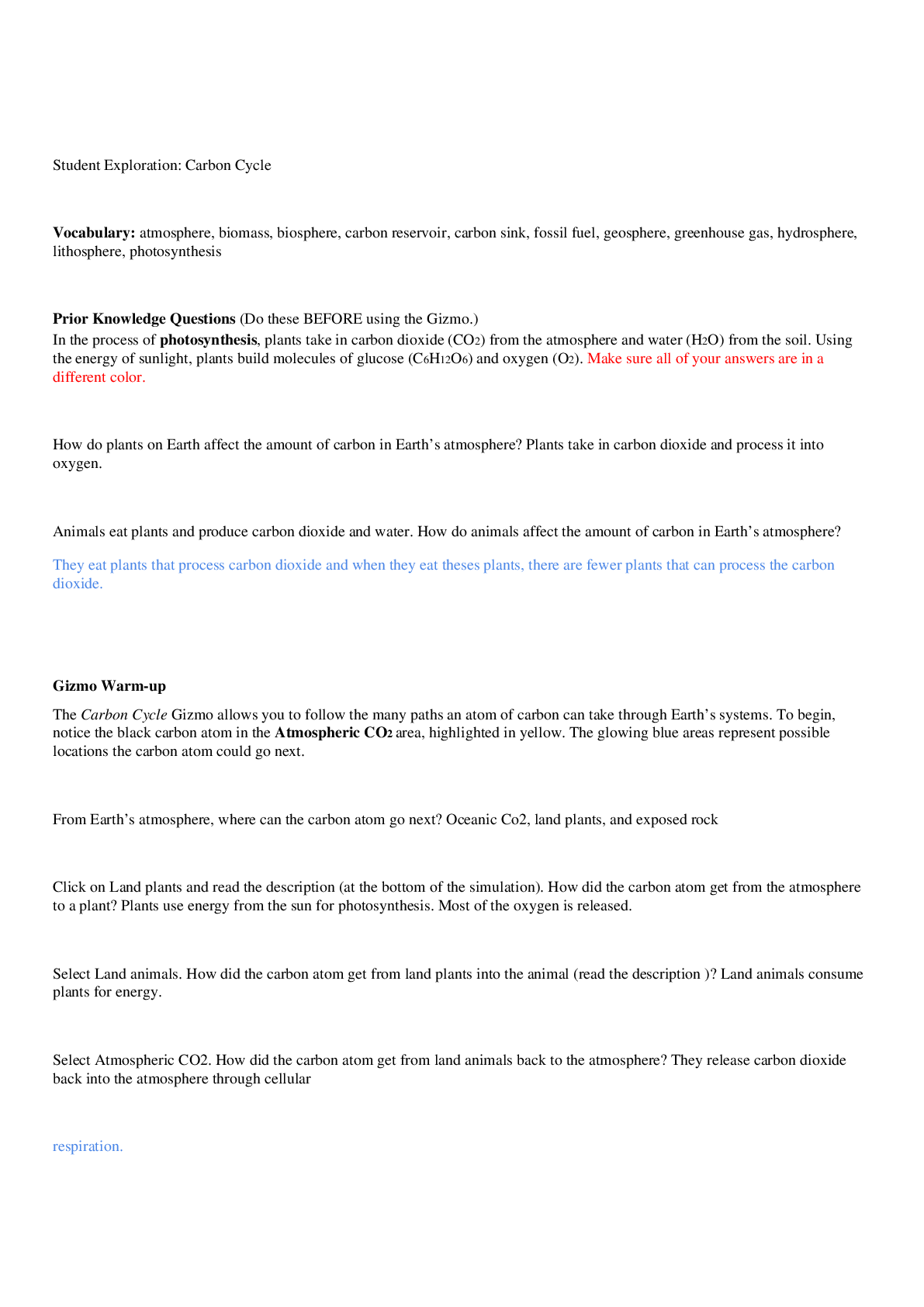
Reviews( 0 )
Document information
Connected school, study & course
About the document
Uploaded On
Jul 18, 2021
Number of pages
7
Written in
Additional information
This document has been written for:
Uploaded
Jul 18, 2021
Downloads
0
Views
32


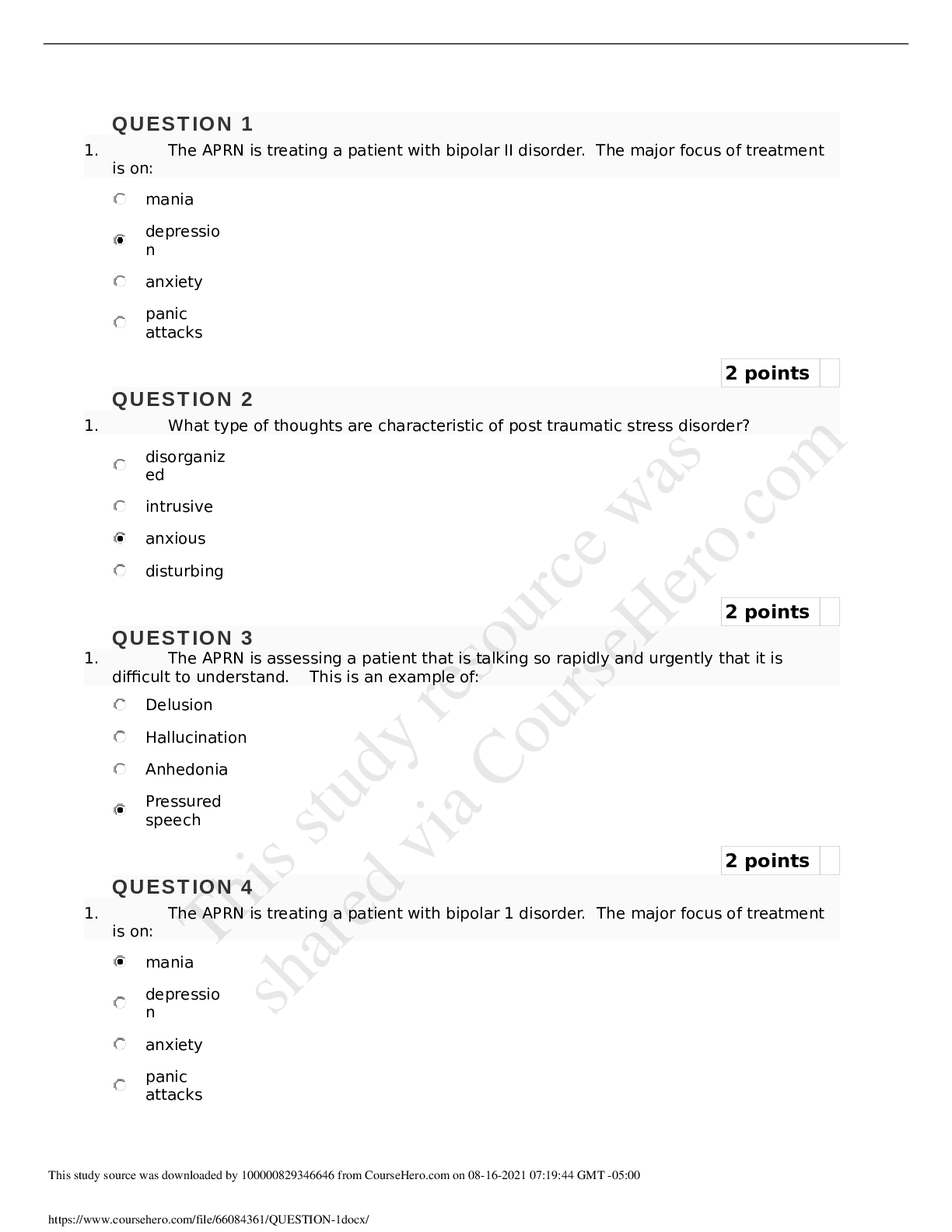

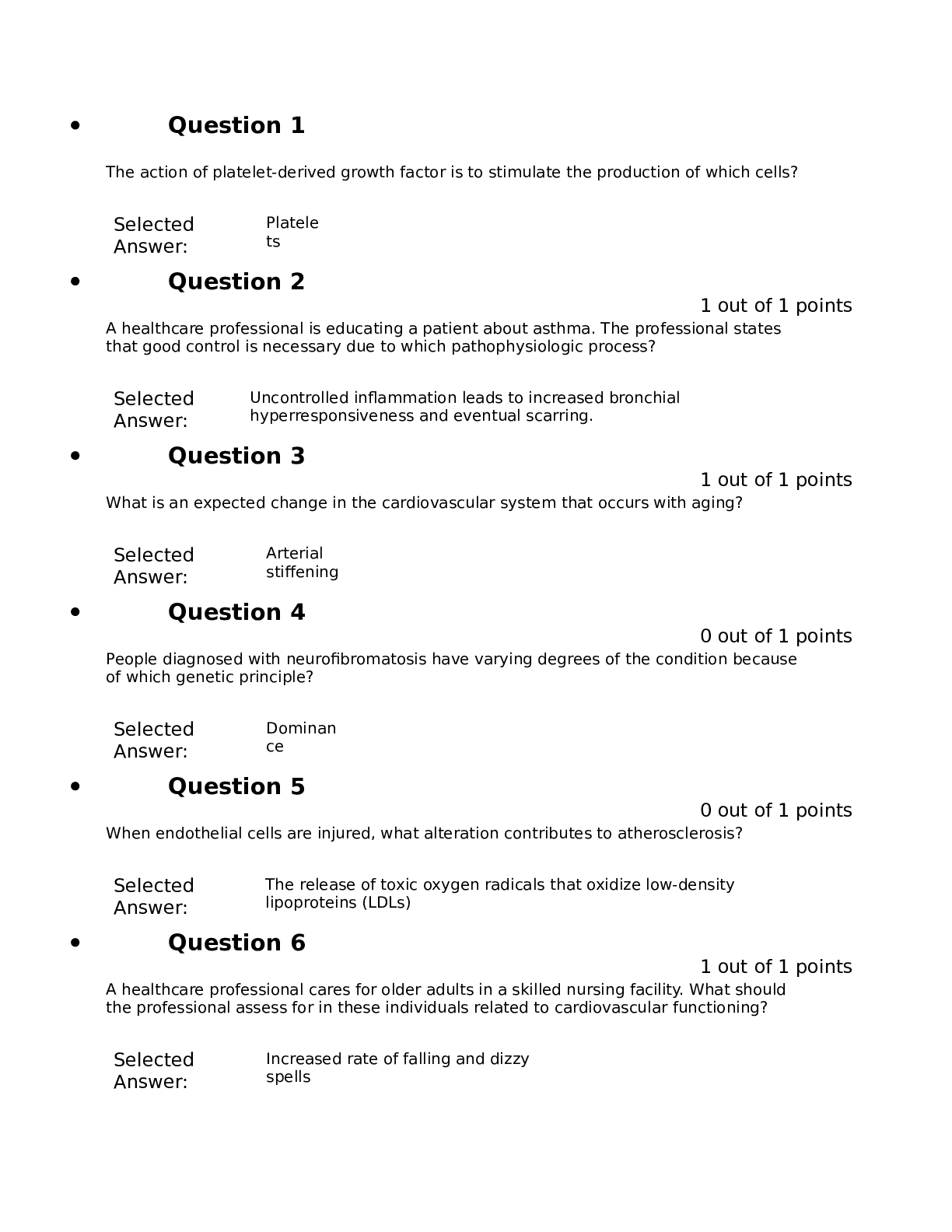
.png)
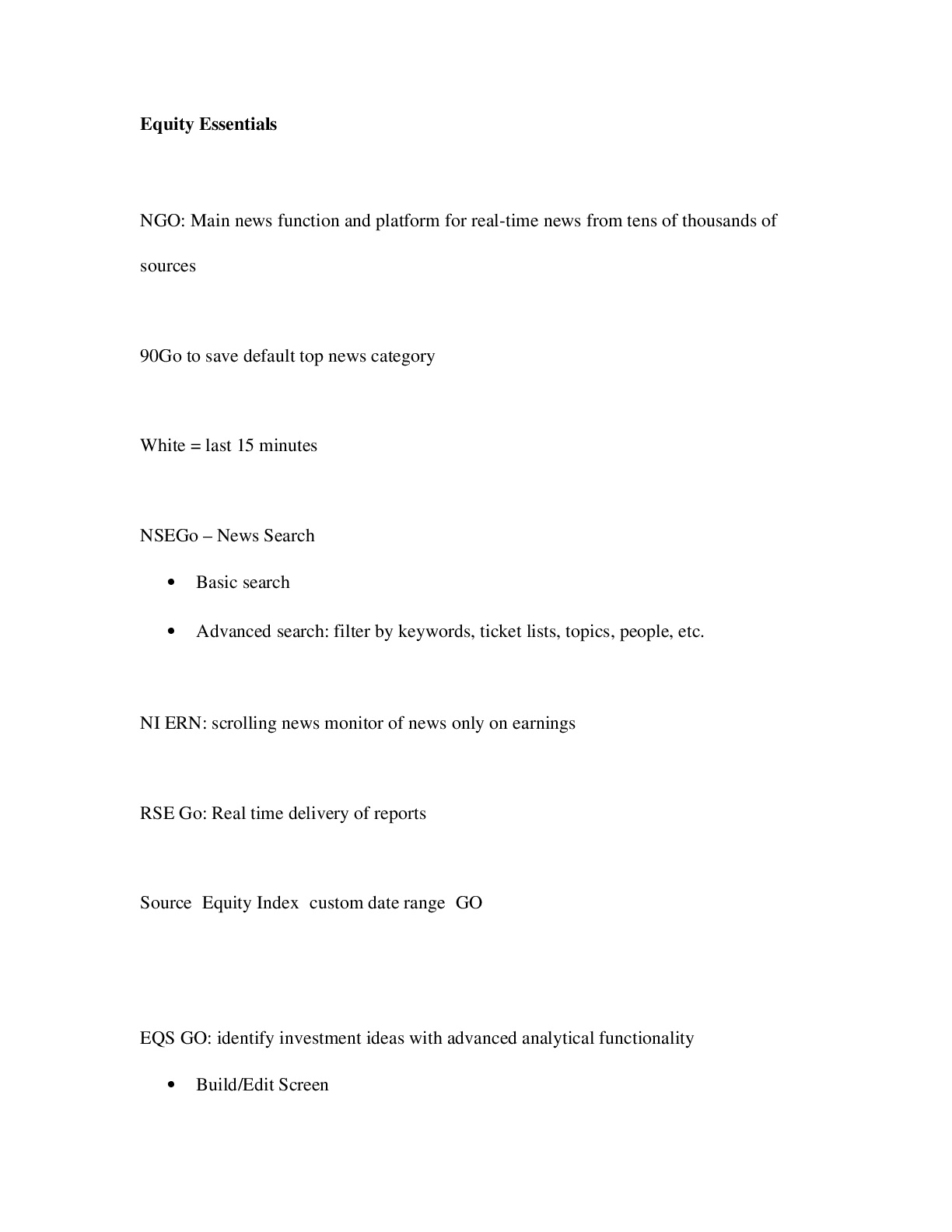
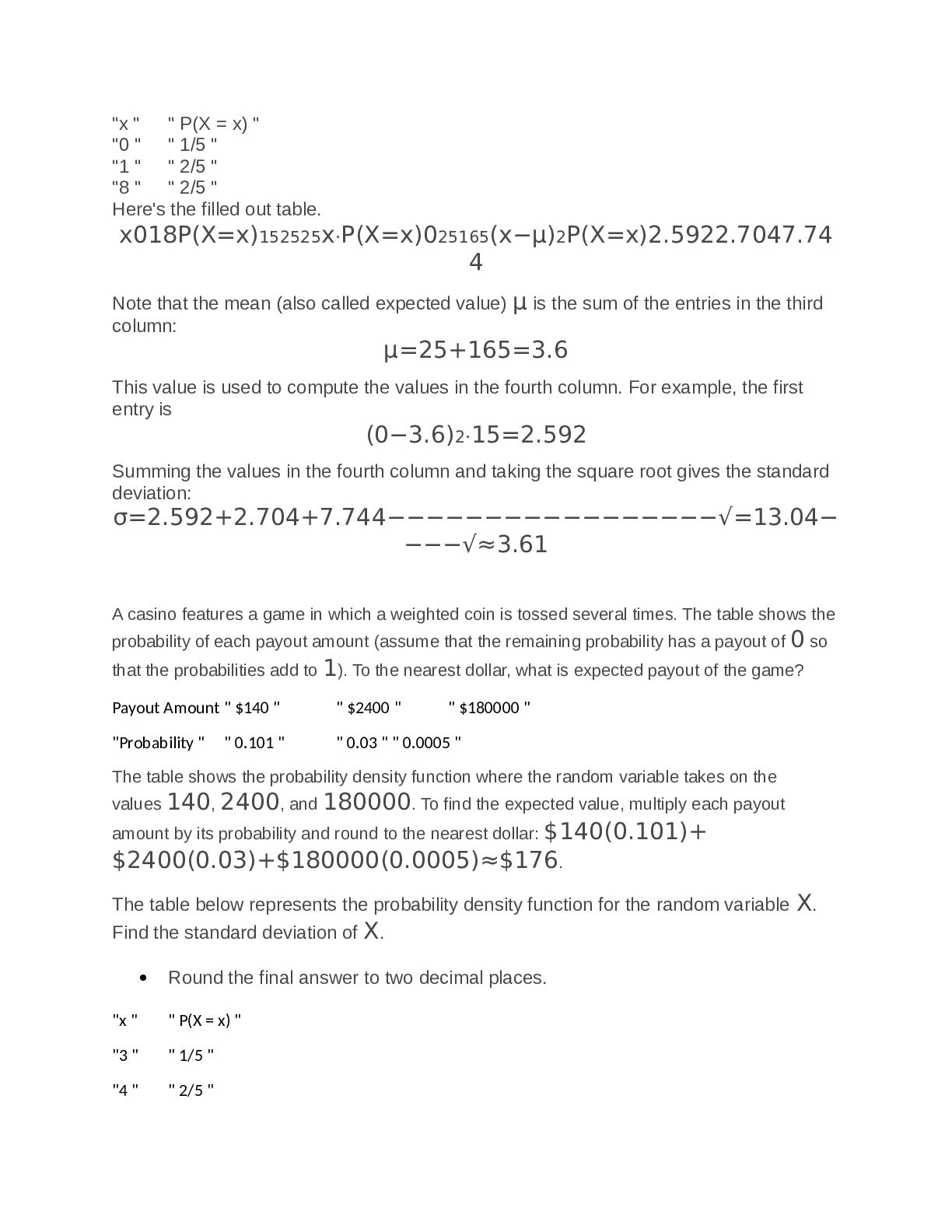
.png)
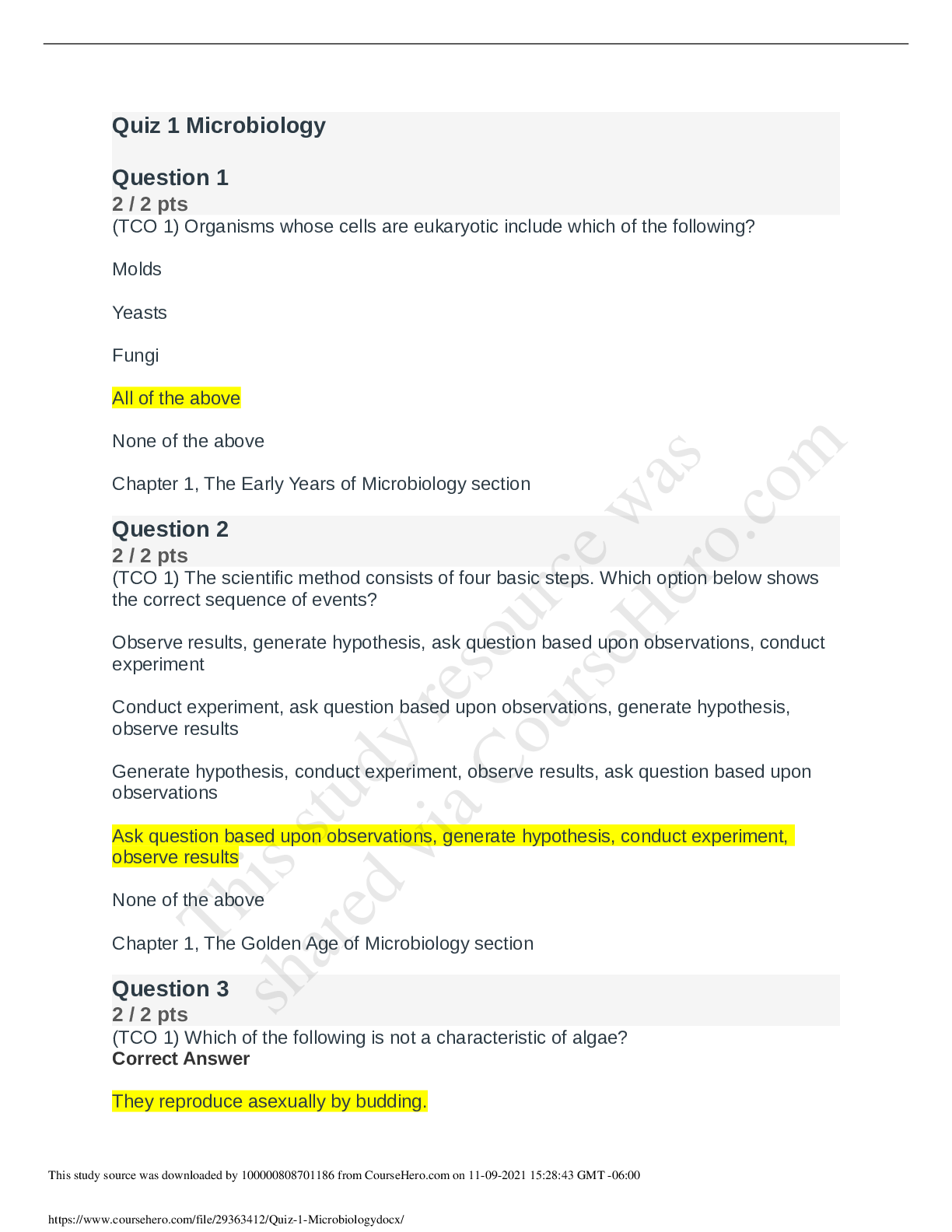
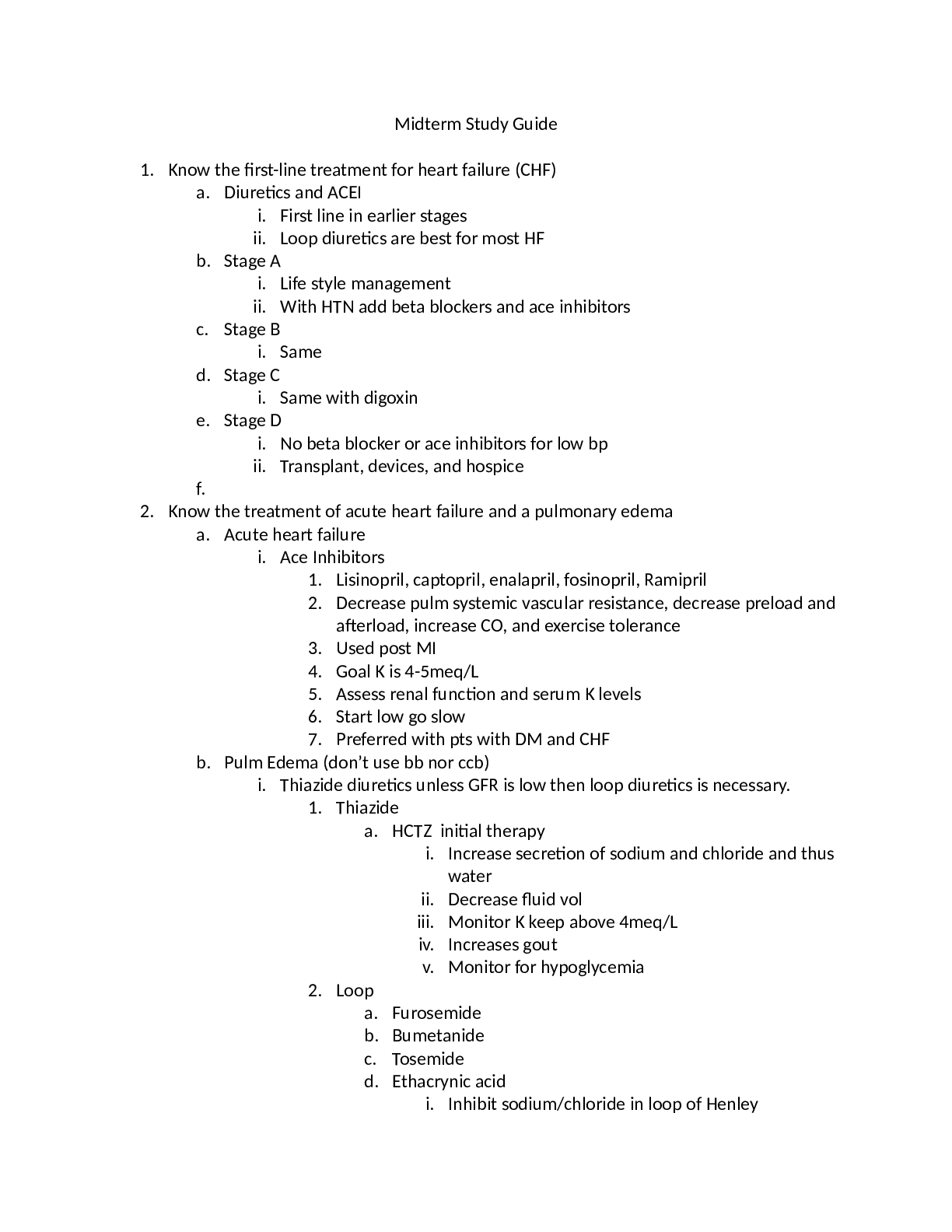
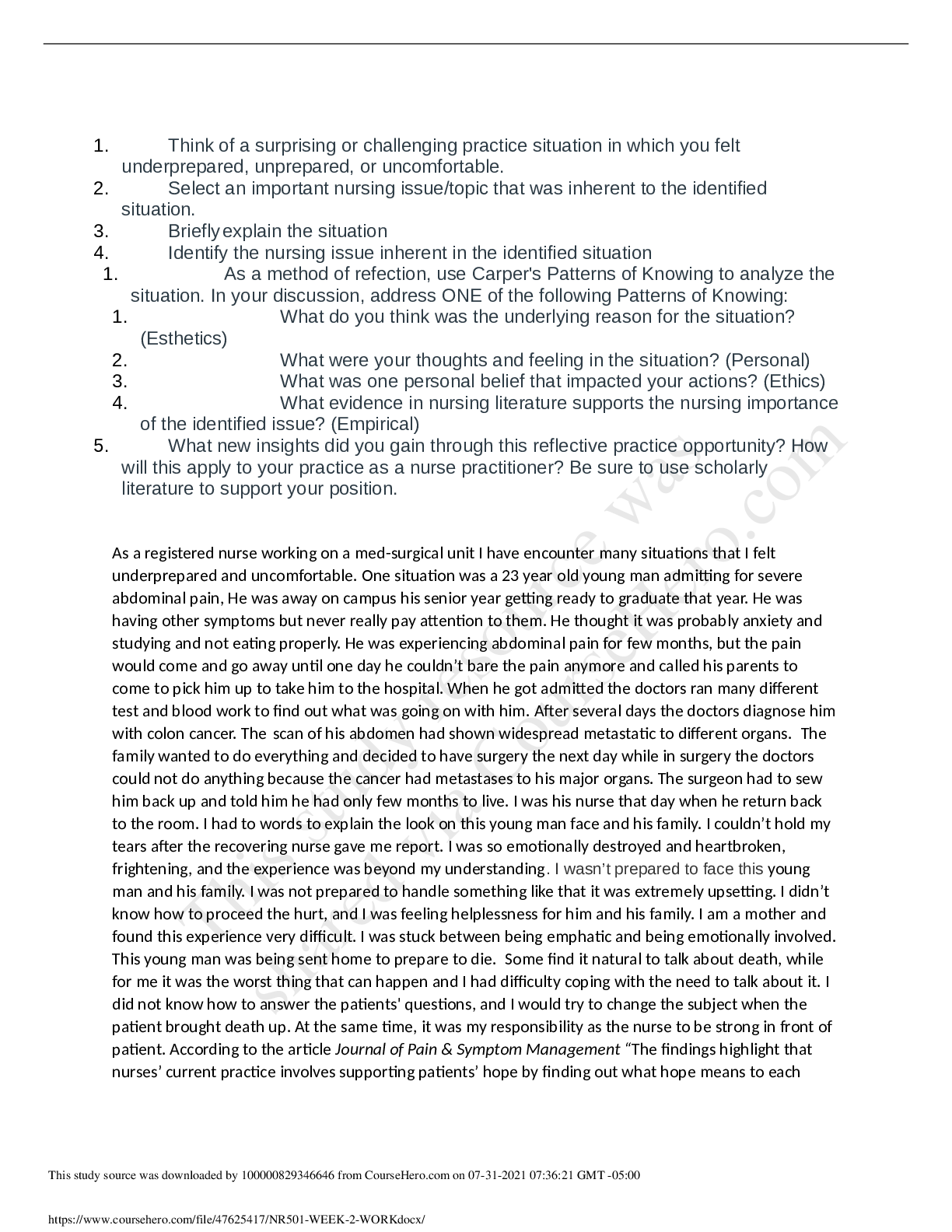
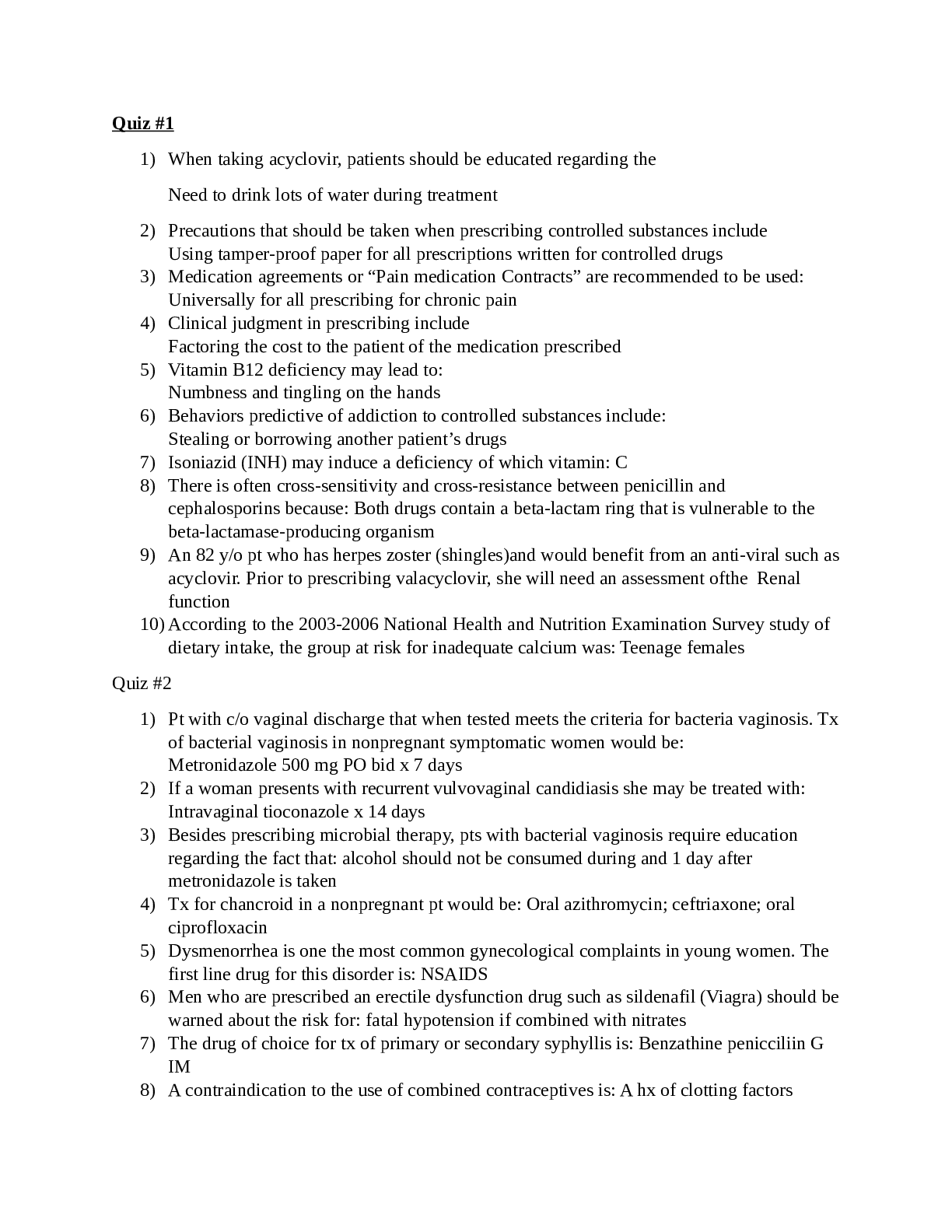

.png)

